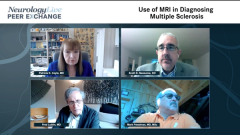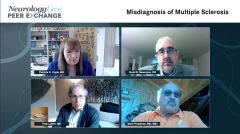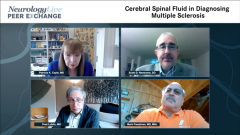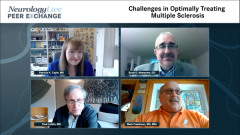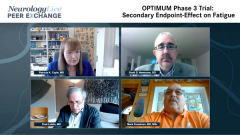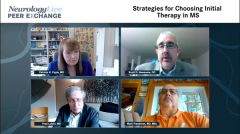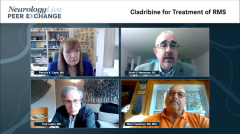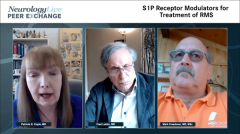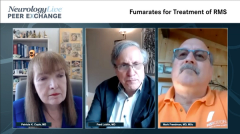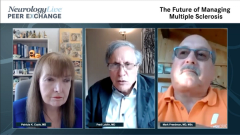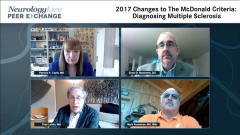
Strategies for Choosing Initial Therapy in MS
Episodes in this series

Scott D. Newsome, DO, details strategies for choosing initial therapy for treatment of multiple sclerosis, including emerging data suggesting more aggressive up-front treatment when starting therapy.
Fred Lublin, MD: Let’s move into our next section looking at currently approved therapies.
Scott or Mark alluded to these strategies for choosing an initial therapy, which boils down to this idea of escalation vs starting with the high-efficacy therapies. We’re hopeful about getting data to guide these decisions. Right now, they’re based on the clinician’s assessment of prognosis, understanding the difficulties of individual prognostication, the extent of their disease, how serious it is, and where it is involved.
The patient preferences are critical issues. How concerned are they about safety? How risk averse are they? What are their pregnancy plans? What are the insurance issues? There are many factors beyond the idea of starting with a drug that’s been around for a long time that we know works in some people. We can say, “Let’s try it. If that doesn’t work, we’ll go to a drug for which the safety may not be as good, but the efficacy may be better vs starting people hard up front.” Let’s get your thoughts on all that. Scott, why don’t you start?
Scott D. Newsome, DO: As Mark or Pat alluded to earlier, we don’t have that ultimate biomarker, not only for diagnosis but also for the person sitting in front of you. Which biomarker or which clinical factor gives you a certain level of confidence that you need to go in a different direction, in terms of treatment, whether it’s a low-efficacy, modest-efficacy, or high-efficacy drug?
If this is the question you’re asking, I try to use clinical and paraclinical factors of what I call “badness” in determining the direction of treatment. There are emerging data from observational studies that are pointing toward being more aggressive up front in treating MS [multiple sclerosis]. In my practice, I’ve not prescribed a self-administered injectable therapy in a very long time for that reason. Usually, when I see a patient up front, regardless of what their clinical type is for relapsing disease, I will often go with an oral therapy or an infusible therapy. If I start someone on an oral therapy, I have a low threshold to escalate to an infusible therapy. That could occur within the first year of treatment, as long as someone is compliant with their medication and they’ve been on their treatment for at least 6 months. If they have a Gad-enhancing lesion on a lower-efficacy therapy, it’s worth considering switching to higher-efficacy therapy.
Do I have a high level of confidence that the escalation going to put someone in a better place, from a disability perspective, 20 years down the road? I don’t think we have data to support that. However, the observational studies hint toward that from the MS-based cohort.
Newsletter
Keep your finger on the pulse of neurology—subscribe to NeurologyLive for expert interviews, new data, and breakthrough treatment updates.

